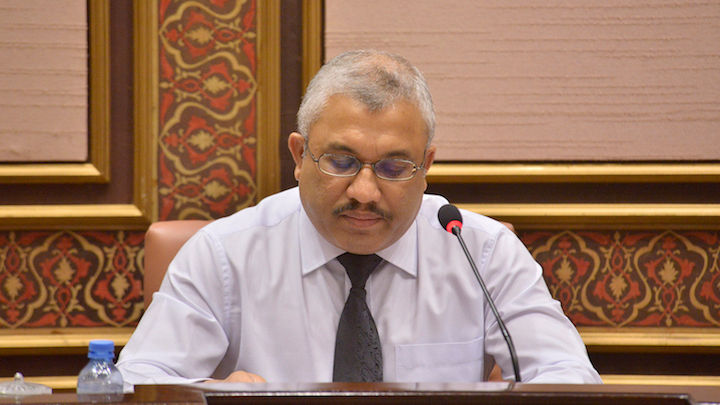Finance minister submits record MVR27bn budget for 2016
While MVR21.5 billion was expected in revenue this year, Finance Minister Abdullla Jihad said the government will only have earned MVR17.7 billion by the end of the year. The forecast deficit was MVR1.3 billion, but the figure is likely to reach MVR3.6 billion or 6.9 percent of GDP.

12 Nov 2015, 09:00
Finance Minister Abdulla Jihad today submitted for parliamentary approval a record MVR27.4 billion (US$1.7 billion) state budget for 2016.
With 41 percent allocated for capital investments, Jihad said “mega projects” such as the Malé-Hulhumalé bridge and development of the international airport will begin next year.
Aside from numerous infrastructure projects in the atolls, other major projects include building 3,485 housing units across the country and land reclamation in Shaviyani Funadhoo to develop a regional airport.
At MVR16.2 billion, recurrent expenditure – including the wage bill, pension payments, state benefits, subsidies, and office administrative costs – accounts for 59 budget of the budget.
Become a member
Get full access to our archive and personalise your experience.
Already a member?
Discussion
No comments yet. Be the first to share your thoughts!
No comments yet. Be the first to join the conversation!
Join the Conversation
Sign in to share your thoughts under an alias and take part in the discussion. Independent journalism thrives on open, respectful debate — your voice matters.




